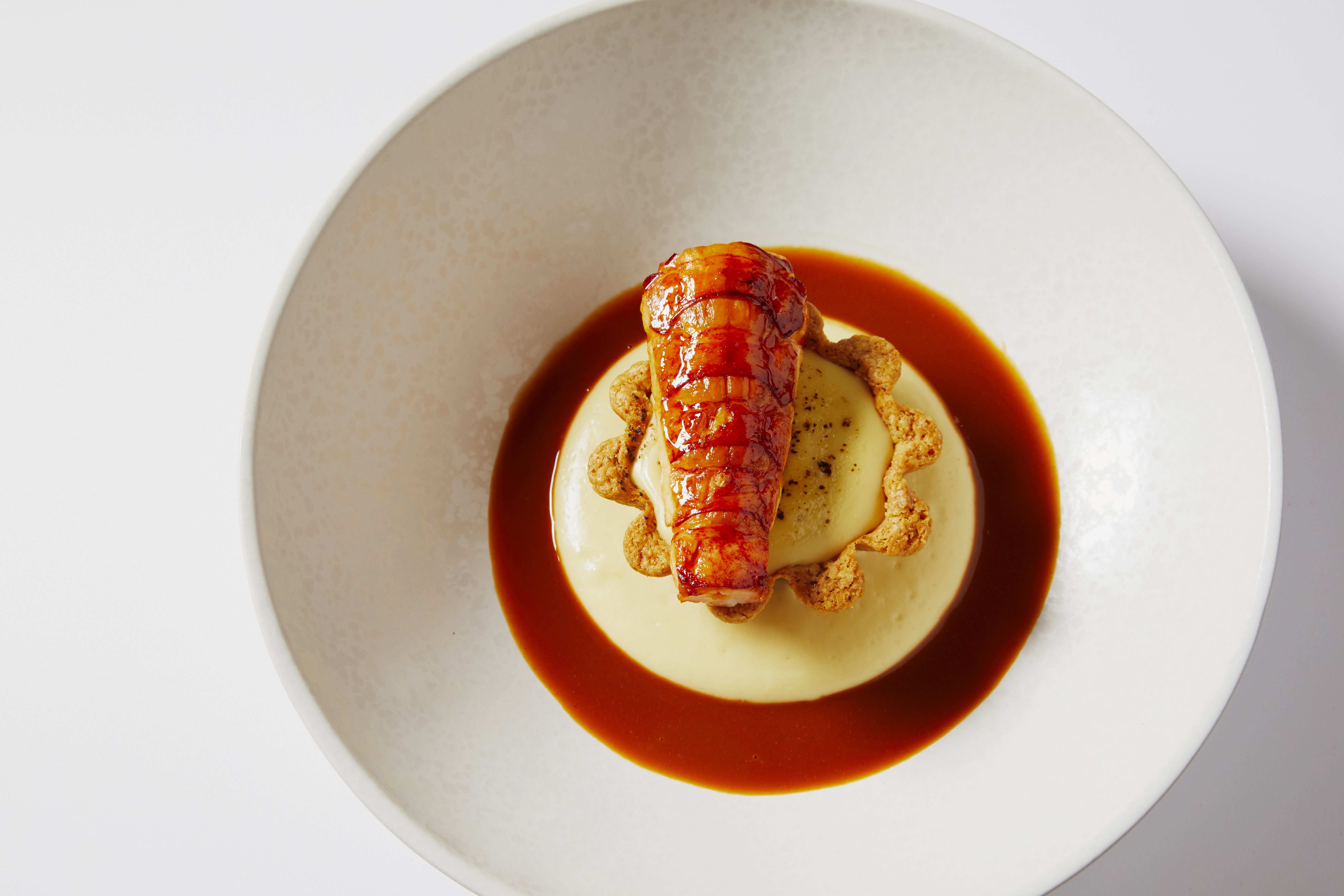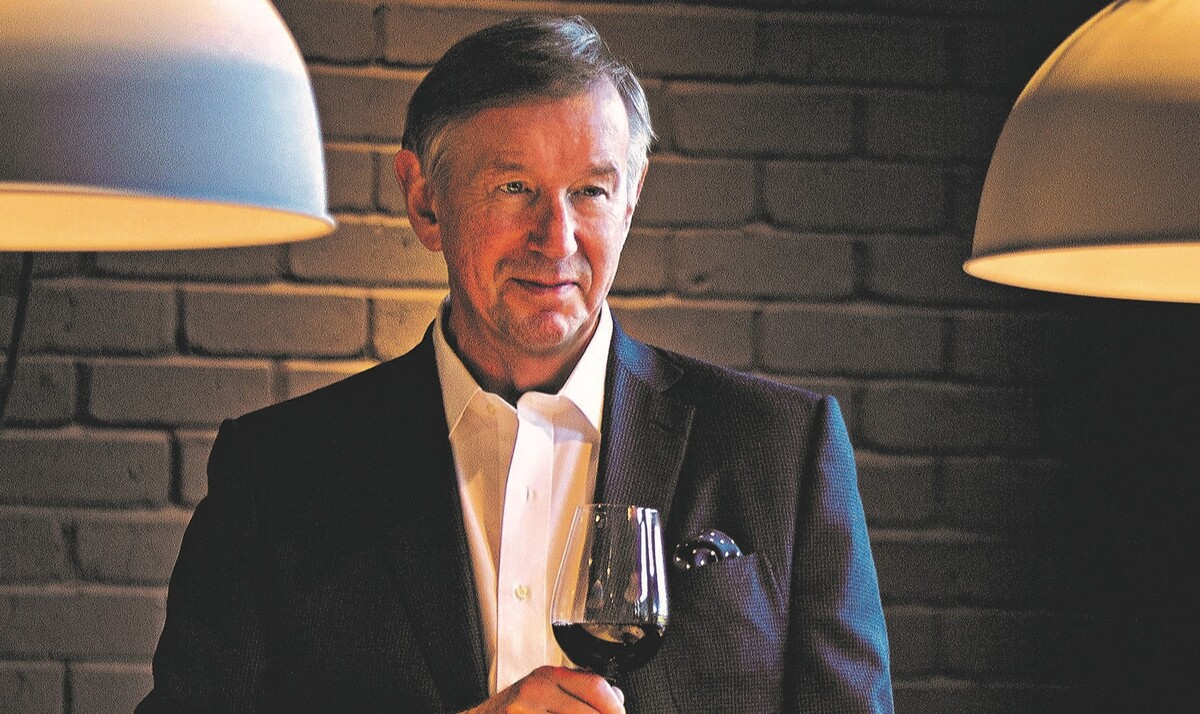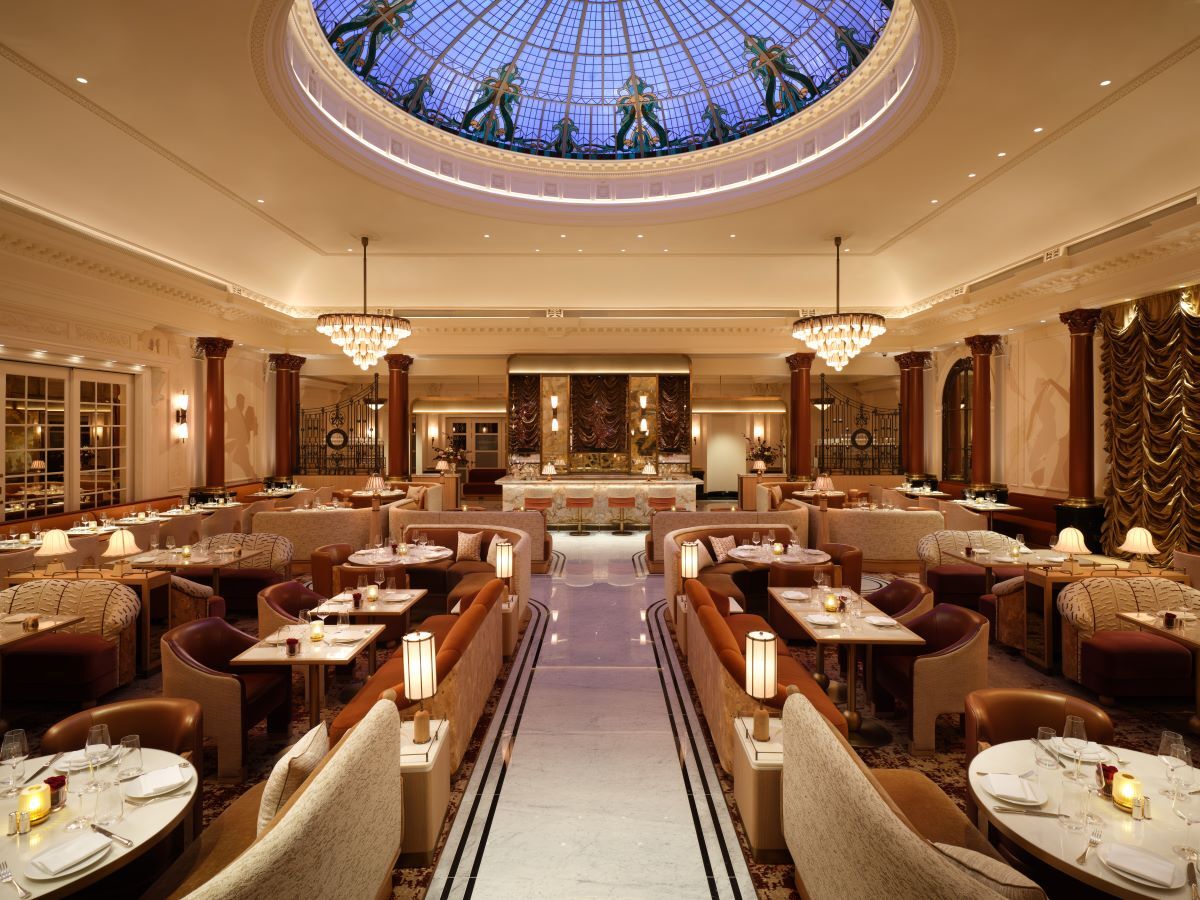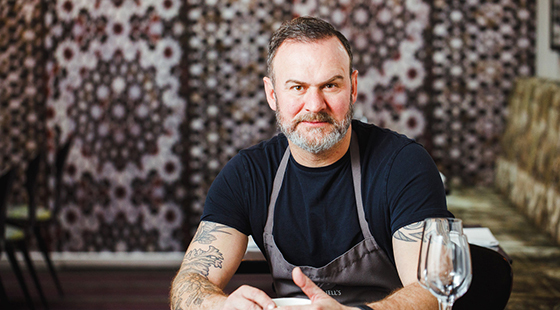Reviews: the Grill at the Dorchester, Bubala and more
The Times’ Giles Coren says the relaunched Grill at the Dorchester is “charming, progressive and fun”
A weeny potato skin was stuffed with buttery mashed Jerusalem artichoke (or, wait, was it a choke skin?) and covered with grated truffle, with some baby globe hearts nestled alongside in a sort of barigoule. They were Italian, the waitress said, and provided by Natoora, but struck us as oddly unseasonal (as did the blades of samphire). All very, very good, though.
My middle course was truly exceptional. Two glazed lobes of sweetbread, beautifully golden and crunchy, sitting on well-seasoned lentils full of pebbly heft and fibre that served the offal incredibly well. And all this sat beneath two saucer-sized discs of celeriac that seemed to melt transparently over it, on top of which was a chunk of maitake mushroom, golden, gland-like in shape and size – a pun on the pancreas beneath? Perhaps, but properly, properly wonderful.
I then had the best lobster thermidor I’ve ever known (offered at a £20 supplement to the £60 three-course lunch menu). The huge, shelled thorax of the beast was brought out by [head chef] Tom [Booton] himself (looking barely half his 26 years), who explained how he freezes it to tenderise the meat and avoid the toughness that bedevils the dish, then taken back, cooked and served over a gorgeously crumbly tart full of its eggy thermidor sauce. The meat was indeed soft, and sliced easily into slender roundels with a sharp knife, without cracking the fragile pastry on which it sat.
Rating: cooking: 9; service: 10; owner: 0; score: 6.33
Bubala in London’s Spitalfields is a vegetarian restaurant that deserves to last, says The Observer’s Jay Rayner
There is still-warm falafel with a puddle of whipped tahini and crimson strands of pickled onion. There are discs of aubergine, long-roasted until the skins are almost crisp and chewy, then dressed with heaps of a sharp coriander relish called zhoug. Oh yes, tonight I am learning many new words. A long plank of mellow halloumi comes crisply fried and dressed with black-seed honey. People will tell you breathlessly that this particular honey, infused with the likes of nigella and black cumin seed, will protect you from cancer. Yeah, whatever. You only need to know it’s lovely on halloumi; if you have a cold, try a Lemsip.
A chunk of cabbage comes seared and blackened and pelted with pomegranate, hazelnuts and tahini by a kitchen that has never heard the phrase “enough already”. It doesn’t need to because it’s a delightfully messy dish. A lump of green romanesco cauliflower is less than fiercely cooked. We have to ask whether they have anything approaching a steak knife. They find something. Even then, we send part of it flying across the table in a splat of smoked tomato sauce punched up with ras el hanout. When we get it all back on to the plate it’s another strong and satisfying mess.
I have to take issue with one menu description: confit potato latkes. I know latkes, and latkes these ain’t. A latke demands grated potato, egg, perhaps a little chopped onion. They are ill-shaped dollops of crisp-fried potato. What they serve at Bubala are geometric blocks of finely sliced confited potato, pressed and then deep fried, which originated at the Quality Chop House on the Farringdon Road. They’re great. Of course they are. They’re deep-fried pieces of already confited potato. How could they not be great? The sprinkling of Aleppo chilli adds an encouraging kick. But latkes, they are not.
Price: small plates, £5-£7.50; large plates, £9-£11; desserts, £4-£5.50; wines, from £25
Amazónico in London’s Mayfair offers “slightly kitsch simplicity in an exoticised, vaunted package”, writes Jimi Famurewa in the Evening Standard
Food, cannily, rebrands the sushi and steak mode of most modern luxury restaurants as dishes that are inspired by ‘the countries the Amazon river touches’. This translates to shareable Latin-Asian fusion wheezes of varying quality; particularly in the case of bland Venezuelan humitas de choclo (steamed, mashed corn, essentially) and yuca fries that make you crave some sort of specialist police force for crimes against under-seasoning.
But then, hamachi tiradito (cured yellowtail fish) came in a tingling, utterly slurpable passionfruit marinade. Aymara palmito salad (a kind of palm heart-laced Brazilian take on Thai som tam) had its own face-slap of salty-sweetness. And two violently charred rump steaks — brought to the table on vertical skewers for an awkward, pre-slicing ceremony — were adroitly salted, flavoursome and not overly hampered by a sawdusty, accompanying ‘farofa’ crumb.
If chicken tequeños (basically Venezuelan spring rolls, filled with that magnificently grubby, chip shop-style brown mystery goo) made me start to suspect that Amazónico’s secret is to offer wealthy people a glitzy alibi to enjoy quite junky, unsophisticated pleasures, then pudding sealed it. Chunks of six-hour rotisserie pineapple were gratifyingly sticky and boozy, served with coconut sorbet and the heavy hint of a 1970s dinner party.
Ultimately, this slightly kitsch simplicity in an exoticised, vaunted package is Amazónico all over. And, yes, perhaps it doesn’t justify the precipitous prices or current scrum for tables. But the native tribes of Mayfair do things differently. And, like it or not, this is the new king of their particular jungle.
Price: £153 for two. Rating: ambience: 3/5; food: 3/5
The Courier’s Murray Chalmers says the Michelin-starred Peat Inn in Cupar, Fife, “needs to loosen up the polite flavourings a bit, raise its game with the service and not rely on a certain very specific and slightly outmoded modus operandi if it’s to reach out to new generations of diners”
The starters were sublime although David’s fine tart of young heritage beetroots, figs, Lucky Ewe cheese and balsamic dressing (£10) meant he had two consecutive dishes based on a riff of beetroot on pastry. (His vegetarian amuse bouche was just that.) My cured sea bream, dressed white crab, lemon crème fraîche and squid-ink crackers (£10) was an excellent dish, as light and fresh as can be – clean food in its truest and least reductive form.
The main courses were less successful. I was torn between a 12-hour braised daube of beef (£21) and a dish of roast pheasant and hispi cabbage (£22). The waiter said both were great but immediately opined that the beef was the one to go for. It wasn’t great. The long braising had effected a sort of reverse Midas touch where the depth of flavour just wasn’t there – like the beef’s very essence had been leached out.
The radicchio stuffed with red cabbage tasted of… red cabbage, the wonderful acrid bitterness of cooked radicchio lost in a battle of strong spicing. The young parsnips, beetroot and carrot purée, cob nuts and diable sauce were a weird miasma of nothingness – not the robust, assertive flavours you would expect.
Price: starters, from £10; main courses, from £18; dessert, from £9. A three-course lunch menu of the day is available at £25 per person. Rating: value: 7/10; menu: 9/10; atmosphere: 8/10; service: 7/10; food: 8/10
The Sunday Times’ Marina O’Loughlin visits the Ivy Cambridge Brasserie and describes it as “a posh Wetherspoon’s for people who don’t mind paying through the nose for mediocrity if it comes in a nice outfit”
Small eruptions of modernity creep in: jackfruit for yer vegans, Iberico pork for yer foodies, but nothing to disconcert an audience determined on the Ivy formula of expensive comfort food.
It’s so comforting that one starter could have been fed to an infant with few ill-effects; it’s almost entirely without personality, flavour, depth: a rice pudding with textural nibs of… something (oh, right, that’s the billed lobster) and blurts of vaguely fishy coral foam on top. Its recipient describes it as “Heinz baby lobster risotto”.
But there are surprise hits too: the Iberico pork is a fat, juicy chop that tastes like well-reared meat, even if, like the room, it’s far too gussied up: cep butter, baked apple, thick, claggy calvados sauce. My choices also buck the trend by being pretty good: a suave chicken liver parfait with crumbs of what tastes like praline on top and decent toasted brioche; and a freshly fried chicken Milanese topped with an egg, its sunshine yellow yolk suggesting a good egg, perhaps a Burford Brown. But that’s because I wimped out and ordered the most basic food on the menu. My defence? It’s what you must do in this most basic of restaurants.
…we’re not asked how we want the burger cooked and, too late to remonstrate, it arrives almost carbonised, gristly and hotter than hell: “We’re only allowed to serve it well done,” says the waiter. Its chips are cheap catering-pack jobs, trying to hide their commercial mealiness under the lipstick-on-a-pig splat of Parmesan and truffle oil. Creamed spinach as a side, dry and composty, has all the allure of something coughed up by Shrek.
Price: meal for two, including 12.5% service charge, £137
Mizu at the Lodore Falls hotel in Keswick, Cumbria, is a bit like Wagamama without the diligent service, writes Grace Dent in The Guardian
At Mizu, I order a plate of “Asian sausage”, imagining it to be a welcome rip-off of the rustic, northern Thai banger you get at Ben Chapman’s Kiln, teeming with kaffir lime, coriander root, galangal and lemongrass. Instead, I am sent a plate of pigs in blankets lying in a puddle of sesame sauce. And here all hope evaporates.
The “sushi” is largely California rolls containing mayo or cream cheese, and none of it feels freshly, just-that-minute rolled. The menu section marked “sticks” – they mean yakitori – features chunks of sweet potato that give nothing of the grill, as well as prawns and pork belly.
The “big plates” are better than the sushi and sticks, even if their presentation is flawed. “Steak & tempura” is an 8oz steak half marinated in dashi and half dipped in tempura (ie, battered). It is, quite frankly, bizarre. The lentil sauce in the Sri Lankan parippu fish curry is gorgeous, but a grey piece of pan-fried cod plopped skin side up on a beige sauce will not win any hearts on Instagram.
Price: about £40 a head à la carte, plus drinks and service. Rating: food: 3/10; atmosphere: 3/10; service: 2/10
The décor at the Caddy Mann in Jedburgh doesn’t match the “exquisite precision” of the chef, according to The Telegraph’s William Sitwell
The menu is a celebration of British classics and local produce, from pigeon and beef to venison and haggis. My chicken-liver pâté starter could not have been bettered. It was not over-whisked, but nicely fluffy, smooth and with a drizzle of red-onion jam that was just tart enough to match the sweet liver. There was a delicate garnish of tiny leaves and pea shoots and, with a roundel of toast, it was a dish of perfect proportions. My pal Dillon was equally effusive about his roasted wood-pigeon breast.
The ‘Caddy Mann lamb’ had grabbed my attention with its promise of a slow 18-hour cooking process and it was a succulent and tasty dream. This place being a touch old-fashioned, along came a bowl of veg as well as chips. The latter were as described: ‘real and proper’ (crunchy on the out, fluffy on the in), and while the carrots and cabbage were cut and looked like school food, they were superb: sweet, cooked to just the right texture, again faultless. We shared a chocolate tart, which came on circles of dark sauce and with a delicious scoop of crunchy chocolate ice cream.
Price: lunch for two, £55, excluding drinks and service. Rating: 3.5/5
HOTELS
Fiona Duncan of the Telegraph praises Little Barwick House, near Yeovil, Somerset, for being the epitome of “personal, welcome-to-my-home hospitality”
You eat well. Be sure to arrive in time for complimentary tea and scones by the fire in one of the two homely sitting rooms, with log fires and shelves of books and family photographs (though the framed industry accolades do disrupt the homely rhythm a little).
And you sleep well, too. The seven modest bedrooms, located on the two upper floors of the house, are tranquil and domesticated, with pretty fabrics, crisp linen on comfy beds, fluffy towels and big bottles of bath products.
Tim and Emma Ford are the owners of Little Barwick and their traditional take on British hospitality can be traced back to its roots. They met at Sharrow Bay, overlooking Ullswater in Cumbria, where for 10 years Tim was head chef.
Price: double rooms, from £250 per night, including afternoon tea, dinner and breakfast
Craig Fowler of the Scotsman enjoys the comfort of his suite at the Glasshouse in Edinburgh, but finds that the relaxed dining space offers a less than generous eating experience
The Macallan Suite – each room is named after a popular whisky – was stunning. The windows were floor to ceiling and ran the length of the back wall of the suite with a view of the landscape edging up towards the top of Calton Hill. They were also tinted, so guests can get a view of the outside without worrying about those on the outside getting a view of them. Thick, blackout curtains meant the intrusive nature of the morning sun didn’t get a chance to spoil a much-needed lie in.
The set-up is a little different from your standard hotel dining experience in that there isn’t an evening dining room as such. Guests are instead welcomed into the Snug bar, which lives up to its moniker. While standard dining tables and chairs are on offer, there is also plenty of comfortable seating available for eating and drinking. None are more appealing than the couches around the fire pit, which is in full view as soon as you walk into the softly-lit room.
Even if you settle for the traditional method of dining, the chairs all point away from the tables at a 45 degree angle to encourage a more relaxed experience. As for the food, “light” would be the best description for the majority of dishes we experienced. Starters of haggis bonbons and black pudding rolls left scarcely a hint of grease and the desserts were similarly delicate, but as someone with a ravenous sweet-tooth, I must admit to wanting more from the chocolate fudge cake.
Price: rooms from £135 per night
















